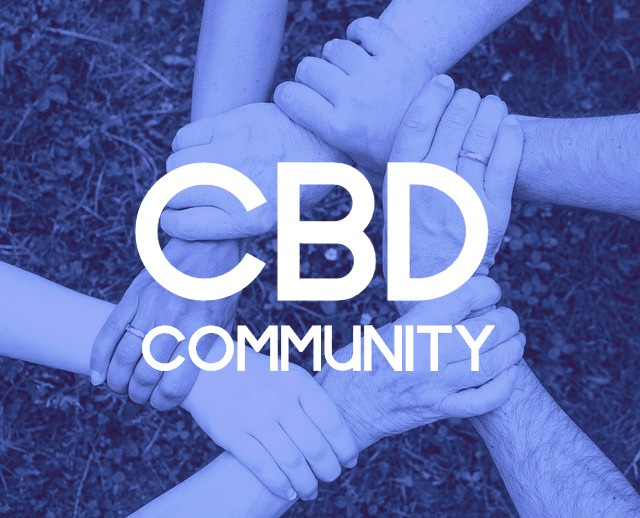Last updated on 25 May 2022
Here’s What You Need To Know
Human and animal scientific research suggests that THC is a great sleep aid for patients suffering from anxiety, pain, and sleep apnea that is obstructive, however this isn’t the case with CBD.
But, if you’ve not yet experienced the ways in which CBDA differs from CBD (and the majority of people haven’t) this guide will provide the information we’re learning about this potent acidic cannabinoid, and how it works with CBD or even instead of CBD to treat and prevent symptoms.
Here’s what you should be aware of about CBD and CBDA to help you sleep:
Does CBD aid in sleep?
A lot of people are shocked to learn that CBD does not cause sedation in itself. Actually, it’s generally the opposite, alerting. But, other phytoconstituents within CBD products, like myrcene, a terpene, may be sedative. Additionally, CBD can relieve symptoms that can disrupt sleep, such as the pain and anxiety. This is one reason why users are able to use CBD as well as CBDA prior to bed, and during the night.
In his clinic In her clinical practice, Dr. Nicole Davis has known patients who report that taking a dose at night of CBD causes them to feel more awake, however when they lay down and shut the eyes they fall asleep longer and deeper than without CBD. Some patients say that their CBD usage in the morning or in the early afternoon allows them to rest and sleep better in the evening.
CBD can disrupt sleep in a small percentage of people who take it at night before going to going to bed. Dr. Davis has not heard this compaint from CBDA users.
Based on customer and patient comments, CBDA may be even better at improving restorative sleep as compared to CBD. A few CBD products have significant amounts of CBDA the precursor to CBD, and hemp-derived terpenes, both of which are likely to enhance the efficacy that the item. CBDA is similar to CBD in a variety of target areas in the body, but has been proven to be more absorbable and more potent in a variety of studies.
How To Use CBD For Sleep
“My clinical findings are quite mixed – CBD helps sleep in some, disturbs sleep in others, and doesn’t improve or disturb sleep in the rest,” Dr. Davis says.
“When CBD helps with sleep, it usually does so in higher doses, in products containing naturally-occurring terpenes, and in individuals with other symptoms that are disturbing sleep.”
The most important factor to achieve success with CBD is to use the right quantity, adapted to your specific requirements. Additionally, using a formula with significant levels of CBDA or the legal amount of THC make the CBD more potent, meaning you’ll require less.
CBD oil to help you sleep
To treat and prevent sleep-related symptoms, CBD oil (placed under the tongue) is usually the most effective method of administration. Certain components of the drug is absorbed directly by the capillaries inside your mouth, while the remaining portion that is swallowed will be absorbed by your digestive tract. It is important to note that the medication that is absorbed into the gut is absorbed 4 to 5 times more when consumed prior to an fatty meal, but the doctor. Davis does not recommend eating within an hour prior to going to bed.
CBD drops let users adjust their dosage to find the most effective, customized dosage.
However, CBDA drops or tinctures are more difficult to locate since only a handful of manufacturers have been able to extract and preserve CBDA. At present, CBDA in high concentration is only located within the plant itself.
CBD cream to help you sleep
Creams lotions, salves, gels, and balms are a great method of delivering hemp-derived compounds directly to certain parts of the body, like joints, muscles and the skin to ease muscles spasms, inflammation and other skin issues that disrupt sleep or prevent it.
Many people are unaware the fact that CBD drops can also be applied directly to your skin, either as a topical application or mixed into your personal lotion to cover more of the area.
If you suffer from localized pain that disrupts sleeping, CBD cream can be an easy, efficient solution.
CBD capsules for sleep or to aid in sleep
Capsules are a great delivery method when used to sleep because the effects last for a longer time as compared to other approaches. If you find that your CBD capsules are effective to help you sleep, however, they take a long time to begin working and you are having trouble falling asleep, you can combine them drops, which typically begin to work quicker, or consume the capsule at a later time at night. If you notice that your capsules aren’t working as effectively even at moderate or high doses, it could mean the capsules aren’t being absorbed properly which is often the case with people suffering from low gut motility or other GI conditions; in that situation, you should consider changing to drops.
How to Use CBD and CBDA For Sleep – Dosage Guide
The first step is to try CBD or CBDA in the morning and in the middle of the day for about 3-5 days prior to trying it before bedtime. If you discover CBD or CBDA stimulating and you want to test it before bed it is possible that increasing the amount you use by 2x-4x can help sleeping and relaxation.
How do you use CBD Oil?
The administration of CBD as well as CBDA oil under the tongue ensures quick and effective absorption. CBD as well as CBDA oils are show greater effect when consumed after eating healthy fats or oils.
If you’re just beginning (have not used CBD, CBDA or have had a few times):
- shake in the bottle to ensure that the cannabinoids as well as other beneficial plant substances are evenly dispersed to ensure an even and consistent dosage.
- Begin by placing 5 mg on the tongue. A mirror’s reflection will help you count drops, or administer the medication by placing them on a spoon or the mouth syringe.
- Keep the drops in your mouth for as long as you are able (1-5 mins) before swallowing, allowing maximum absorption.
- Then increase your daily consumption by 5 mg every two days. Once you begin to notice results you will stop the increase and maintain the same amount of drops you take in per day.
- If you find that the effects fade too early in the morning after you’ve taken a dose that you find to be effective with you, then it’s helpful to increase the number of uses you take each day. A lot of people find it beneficial to take CBD to treat pain 3 times a day.
How do you use CBD capsules to sleeping:
To begin with the use of CBD as well as CBDA capsules is easy:
-
Day 1 & 2:
- Consume 1 capsule orally 3-4 hours prior to the time you go to bed.
-
After Day 2:
- Each night until you feel satisfied results.
- If you experience unwanted negative effects or less benefits decrease the dosage by one capsule every night until you have found the optimal level of response.
- If one capsule seems too powerful, or when you have inconsistencies, try switching the dosage to CBD as well as CBDA oil that is administered sublingually.
How to Select the Best CBD to sleep
CBD as well as CBDA products differ widely in terms of their quality as well as their purity and safety. Unfortunately, a number of research studies and investigations have revealed inaccurate labeling and contamination with pesticides heavy metals, and other toxic substances in more than 50 percent of the tested products. In addition, some of the top quality products come with unclear labels, making it difficult to determine the amount of CBD as well as CBDA are contained in each serving.
Based on customer and patient comments, CBDA may be even better at improving sleep and restorative sleep as compared to CBD. A few CBD products have significant amounts of CBDA the precursor to CBD, and hemp-derived terpenes, both of which are likely to enhance the efficacy that the item. CBDA is similar to CBD in a variety of target areas in the body, but has been proven to be more absorbable and more potent in a variety of studies.
Before buying a CBD product that you plan to use to sleep make sure you examine the certification of analysis (COA) which is a test result obtained from an independent lab that reveals the composition of CBD and other cannabinoids (like CBDA), and Terpenes, as well as the absence of contamination by heavy metals and pesticides. Make sure that the COA includes a date and batch number that is in line with the product you are purchasing. Check the label on the product and ensure that you can easily comprehend the amount in mg CBD for each capsule or drop. Also, beware of labels that simply state the quantity in “hemp oil” or “hemp extract” The CBD content can vary greatly.
CBD as well as CBDA products that contain legally permitted trace quantities of THC are most likely to be best for use at night and those that contain more myrcene levels and other terpenes that induce sedation. But, it isn’t always possible to determine if a particular product will have a greater or lesser sedating effect depending on the Terpene profile. A little trial and error might be required to determine the best CBD products suitable for use at night.
Always make sure to check the product’s independent Certificate of Analysis (COA). A lot of products claim to be “broad spectrum” or “full-spectrum” (often which means they contain various phytochemicals and even the legal limit of trace amounts of .2 percent THC). However, if you look up their analytical results, you’ll find that the majority contain only CBD and THC, and very little or no acidic minor cannabinoids, terpenes and other phytonutrients that are beneficial.
It is also typical that hemp plant, even organically grown, to have diverse contaminants such as yeast, mold and viruses as well as heavy metals that are accumulated during the growing, harvesting, and drying processes. The majority of extraction methods either eliminate the contaminants or eliminate them, while also removing the plant’s other beneficial substances. Clean products have confirmed removal of contaminants.
Author
Nicole Davis is a integrative medicine specialist who focuses on sleep and fatigue. She has extensively explored the therapeutic properties of cannabis, and provides specialized treatment plans according to personal symptoms. Dr. Davis is passionate about helping people feel their best, and believes that everyone deserves access to quality healthcare.



